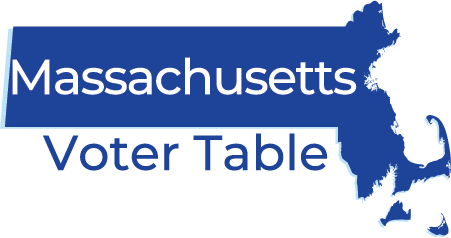In November 2022, voters will likely decide the fate of the so-called millionaires tax, a constitutional amendment that would increase the tax on every dollar earned over $1 million in yearly income, from the current 5% rate to 9%.
The Fair Share Amendment is expected to raise at least $2 billion in state revenue, which would be dedicated to education and transportation.
While a recent poll showed 76% of voters approve the ballot initiative, activists with the group Raise Up Massachusetts are leaving nothing to chance. Over the last week, the group launched a series of organizing initiatives across the state to reach out to voters on the measure.
“We’re trying to win a statewide ballot campaign and talk to millions of voters,” said Raise Up Massachusetts steering committee member Beth Huang. “This is an opportunity to have conversations with people across Massachusetts about inequality and an economy that works for everyone.”
The group will likely face resistance from business-backed groups such as the Mass Taxpayers Foundation and the Massachusetts Fiscal Alliance, both of which are in opposition to the measure and argue it will drive business away from the state. While Raise Up Massachusetts has the backing of the state’s major teachers unions and other labor organizations, business groups could spend millions on advertising against the ballot question.
Over the last two weeks, Raise Up Mass held campaign kickoff events in Massachusetts cities including Lawrence, New Bedford, Fall River, Newburyport, Pittsfield, Springfield and Brockton.
On Monday, the group held a campaign kickoff event in Nubian Square, attended by labor activists and elected officials.
“Here we are standing right at the nerve center of transportation and education right here in Boston,” said state Sen. Sonia Chang-Diaz, speaking in front of the Boston Public Schools headquarters in the Bruce Bolling Municipal Building adjacent to the heavily-traveled Nubian Square bus hub.
Chang-Diaz noted that Gov. Charlie Baker, who has voiced opposition to the Fair Share Amendment, has opposed increased educational spending in the past, citing a lack of revenue.
“What I’m here to say today is, ‘Tell that to the fourth grader who is sitting in the Lynn public schools who has to split school psychologists with 705 other students,” she said.
Chelsea School Committee member Roberto Jimenez said his city’s school system is struggling with inadequate funding.
“You can’t have the best school system in the country if you’re leaving Black and Latinx students behind,” he said. “And that’s what Massachusetts has done over the last two decades as we have systematically underfunded Black and Latinx school districts.”
During the event, elected officials and those campaigning for office were asked to pledge their support for the amendment. Candidates for City Council seats, including incumbent at-large Councilor Julia Mejia, former state Rep. Evandro Carvalho and attorney Ruthzee Louijeune, signed pledge cards, as did mayoral candidate Rep. Jon Santiago and gubernatorial candidate and former state Sen. Ben Downing.
Downing has supported legislative efforts to increase state funding for more than a decade but often faced opposition from legislative leadership. By putting the question to voters, organizers have side-stepped the legislative process, although lawmakers had to approve the ballot question during two consecutive constitutional conventions. They approved the Fair Share amendment in such a convening last week, clearing the way for the measure to appear on next year’s ballot.
“We tried every other way to get this done, and we couldn’t,” Downing said.
Raise Up Massachusetts board member Huang said starting the campaign a year early makes sense, given that business-backed organizations are already beginning to organize against it.
“They’re already spreading myths and fearmongering,” Huang said. “While the Fair Share Amendment is popular, we know that campaigns are won with messaging and a strong ground game.”
Yawu Miller
